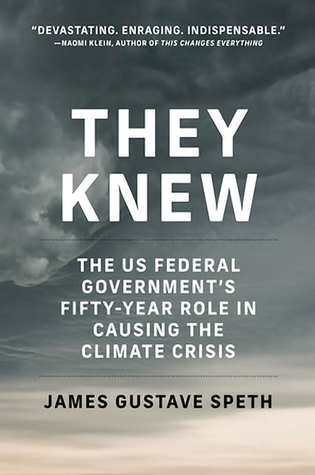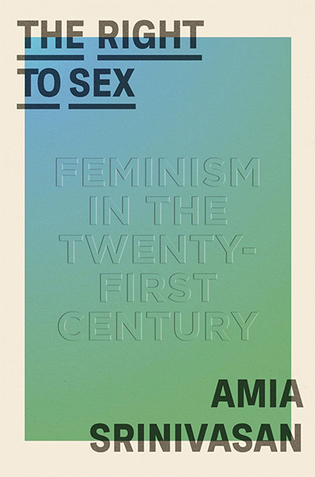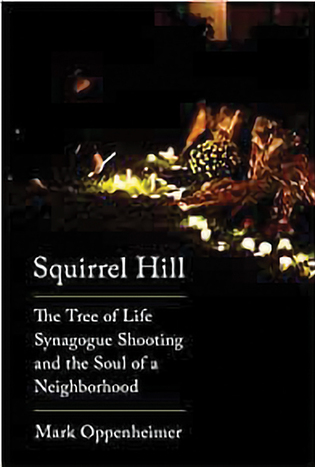
They Knew: The US Federal Government’s Fifty-Year Role in Causing the Climate Crisis
James Gustave Speth ’64, ’69llb
MIT Press, $27.95
Reviewed by Bruce Fellman
The road to climate hell has long been paved with deniability. While climate scientists over the past half century have amassed evidence that the use of fossil fuels is bringing about environmental disaster, US presidents and congresses have been steadfast in looking the other way. The publication of this well-researched, damning examination and indictment of federal policies will make it impossible to assert ignorance ever again.
The government’s “actions on the national energy system over the past several decades are, in my view, the greatest dereliction of civic responsibility in the history of the Republic,” writes Speth, a lawyer who helped found the Natural Resources Defense Council, chaired the US Council on Environmental Quality, served as administrator of the United Nations Development Programme, and led Yale’s environment school as dean.
In 2018, Speth prepared expert testimony for a lawsuit—Juliana v. United States—in which a group of 21 young men and women asserted that the government had, by acting in ways that caused climate change, violated the upcoming generation’s constitutional rights and failed to protect public resources. The suit, originally filed in federal court in 2015, remains in limbo. But through all the twists and turns, no one has disputed Speth’s evidence, which shows that federal administrations knew “that the continued burning of high levels of fossil fuels would lead to climate danger.” The government also knew that there were “pathways . . . to transition away from fossil fuels.”
Some changes have begun: wind farms, solar panels, electric cars. But the status quo is basically in place, with fossil fuels accounting for over three-fourths of US energy consumption. Speth calls it “government malfeasance on a grand scale.” Is anyone in power listening?
Bruce Fellman is a contributing writer to the Yale Alumni Magazine.
___________________________________________________________________

The Right to Sex: Feminism in the Twenty-First Century
Amia Srinivasan ’07
FSG, $28
Reviewed by Heather Hewett ’91
Amia Srinivasan’s provocative book, The Right to Sex, parses the “politics and ethics of sex” in six memorable essays grounded in feminist thought. Her prose is eminently readable, combining philosophical rigor with writerly craft. Throughout, she intervenes into decades-old feminist debates and addresses a range of contemporary issues, from “involuntary celibate” culture and Internet pornography to sex work, Title IX, and sexual violence.
Srinivasan wrote the collection’s eponymous essay in response to Elliot Rodger’s 2014 manifesto and killing spree in Isla Vista, California. Like many feminists, Srinivasan was troubled by Rodger’s “male sexual entitlement, objectification, and violence,” but she was also interested in what wasn’t addressed in media commentary: sexual desire. In this essay and others, she asks us to think about how desire is connected to internalized gender norms and the “ugliest” parts of our culture—racism, classism, ableism, heteronormativity—and how these forces shape “whom we do and do not desire and love, and who does and does not desire and love us.”
On many issues, Srinivasan is adamant. “There is no right to sex,” she says; women do not owe men orgasms. She criticizes feminism’s embrace of liberalism since the 1980s and how it has failed the most vulnerable women, who face increasing economic inequality. She is quite clear that there is no “conspiracy against men” in which women falsely allege rape or sexual harassment. Rather, she says, this claim reflects the anxiety felt by middle-class and wealthy white men who fear their privilege no longer protects them.
At other moments, Srinivasan acknowledges ambivalence. She asks difficult questions without clear answers: how can we think about “sex beyond consent”? If we have internalized the “distortions of oppression,” how do we know whom we truly desire? Might the law be “the wrong tool for the job” when addressing sexual violence? Srinivasan reminds her readers that feminism, at its best, challenges us to tell the truth and to think carefully about what it means to work toward a more just world.
Heather Hewett is a gender studies professor and coeditor of #MeToo and Literary Studies: Reading, Writing, and Teaching about Sexual Violence and Rape Culture (Bloomsbury 2021).
___________________________________________________________________

Squirrel Hill: the Tree of Life Synagogue Shooting and the Soul of a Neighborhood
Mark Oppenheimer ’96, ’03phd
Penguin Random House, $28.95
Reviewed by Veronique Greenwood ’08
On the morning of October 27, 2018, a shooter killed 11 Jews in the Tree of Life synagogue in the Pittsburgh neighborhood of Squirrel Hill. It was the deadliest act of anti-Semitic violence in American history. The shooter’s motivations were drearily familiar, and he is not really part of this story.
In this warm portrait of “the oldest, most stable, most internally diverse Jewish neighborhood in the United States,” Mark Oppenheimer ’96, ’03PhD, walks readers through the unusual place that the shooter, in his venom, attacked. Squirrel Hill, solidly Jewish for more than 100 years, is threaded with many strands of the Jewish experience. Apartment dwellers live alongside mansion owners, and the pillars of the community include Orthodox rabbis and a priestess who specializes in “earth-based Jewish ritual.” In Oppenheimer’s telling, all that vibrancy and variety may have been one of the factors that helped Squirrel Hill respond to the tragedy.
Almost pointillist in its approach, the book meanders through profiles of Squirrel Hill’s inhabitants, including the 90-year-old retired psychiatrist whom the shooter looked at but didn’t shoot, the teenagers who organized a vigil at the nearby Starbucks, and the Trump-voting Orthodox matchmaker who rode her bicycle through a protest during the president’s visit to the synagogue.Oppenheimer deftly transforms this storm of voices and moments into a moving account of a tragedy that struck in a genuine community, strong enough to counter shock and grief with an unexpected ragtag resilience.
Veronique Greenwood ’08 writes for the New York Times, the Atlantic, the BBC, and many others.
 loading
loading

